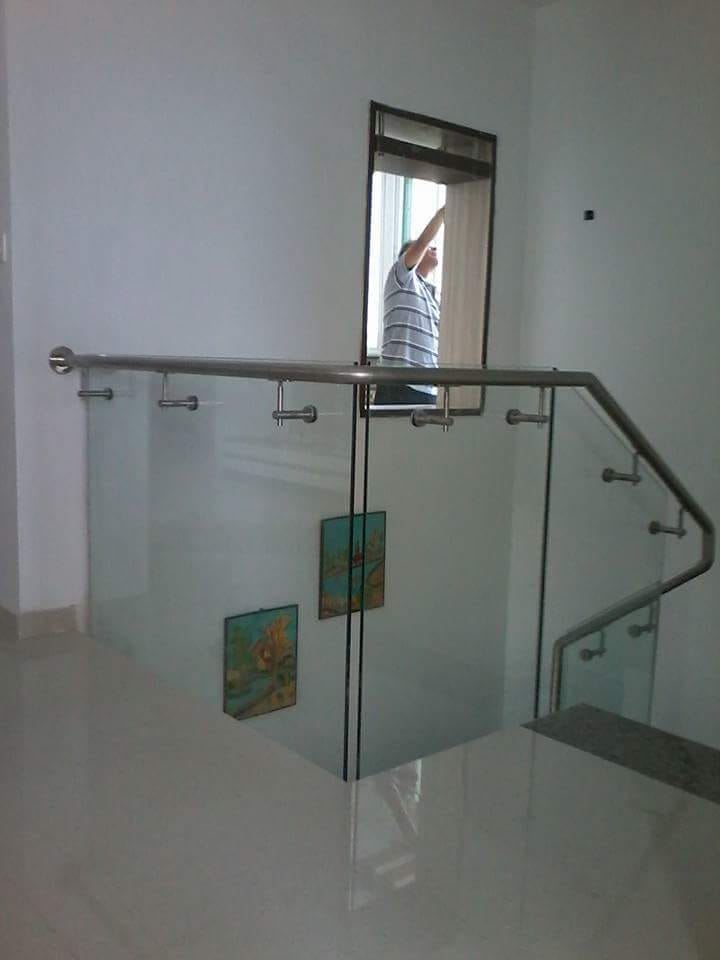Glass staircase railings have become a popular choice for modern architectural designs, offering a blend of elegance, safety, and transparency. These railings not only enhance the aesthetic appeal of a space but also provide functional benefits such as durability and ease of maintenance. If you're in the market for glass staircase railing manufacturing, understanding the process, materials, and customization options is crucial for making informed decisions.
Why Choose Glass Staircase Railings?
1. Aesthetics: Glass railings offer a sleek, modern look that can elevate the visual appeal of any interior or exterior space. They provide a clean, transparent barrier, allowing uninterrupted views and making areas appear larger and more open.
2. Durability: High-quality tempered glass is used in the manufacturing of these railings, ensuring they are resistant to impact and scratches. Tempered glass undergoes a heat treatment process that makes it four to five times stronger than regular glass, providing both safety and durability.
3. Low Maintenance: Glass railings are easy to maintain. Unlike metal or wood, they do not corrode, warp, or require repainting. A simple cleaning routine with glass cleaner keeps them looking new.
4. Safety: Modern glass railings are designed with safety in mind. The tempered glass panels used are extremely strong, and even if they do break, they shatter into small, blunt pieces to minimize injury risk.
The Manufacturing Process of Glass Staircase Railings
The manufacturing of glass staircase railings involves multiple steps to ensure quality, precision, and safety:
1. Design Consultation: The process begins with a consultation where the manufacturer works closely with clients to understand their specific requirements. Customization options, such as panel thickness, frame materials, and design features, are discussed at this stage.
2. Material Selection: Glass railing systems typically use tempered glass with a thickness of 10-12mm. Stainless steel or aluminum is commonly used for supporting frames and fixtures due to their resistance to rust and corrosion. These materials ensure both the aesthetic appeal and longevity of the installation.
3. Glass Cutting and Tempering: Once the design is finalized, the glass is cut to the required dimensions using high-precision machinery. After cutting, the glass panels are tempered, which involves heating the glass to high temperatures (up to 700°C) and then cooling it rapidly. This tempering process strengthens the glass significantly.
4. Frame Fabrication: Frames and fittings are fabricated from stainless steel or aluminum. Depending on the design, these frames may include vertical posts, handrails, or base shoe systems. Stainless steel provides a polished, shiny finish, while aluminum can be anodized or powder-coated for added durability.
5. Assembly and Installation: After the components are manufactured, they are assembled at the factory to ensure fit and finish. During installation, the glass panels are securely fixed into the frames using clamps, bolts, or base shoes. Careful alignment is necessary to ensure stability and aesthetic appeal.
Customization Options
Glass staircase railing systems offer various customization options to suit different architectural styles and preferences:
- Frosted or Clear Glass: While clear glass provides an uninterrupted view, frosted or tinted glass can add privacy without compromising the contemporary look.
- Frameless or Framed: Frameless glass railings create a minimalistic, floating effect, while framed railings add a more defined structure.
- Handrails: Stainless steel or wooden handrails can be added for additional support and design flair.
Conclusion
Glass staircase railing manufacturing is a specialized process that combines advanced engineering, high-quality materials, and precision craftsmanship. By choosing a professional manufacturer, you can ensure that your glass railings not only meet your aesthetic vision but also provide the safety, durability, and functionality you need. These railings are a long-term investment that adds value and sophistication to any space, making them a smart choice for modern homes and commercial properties.
